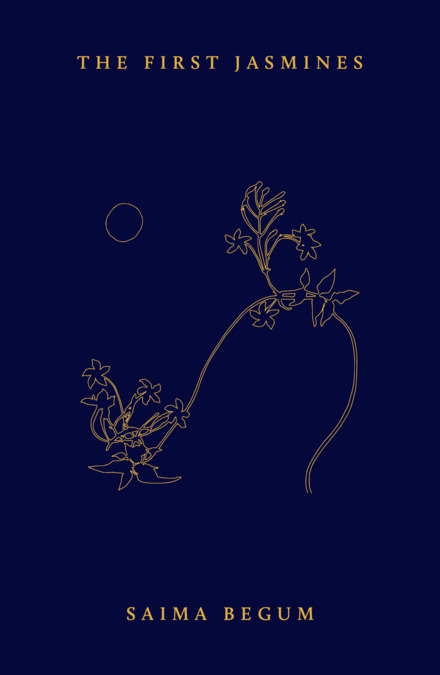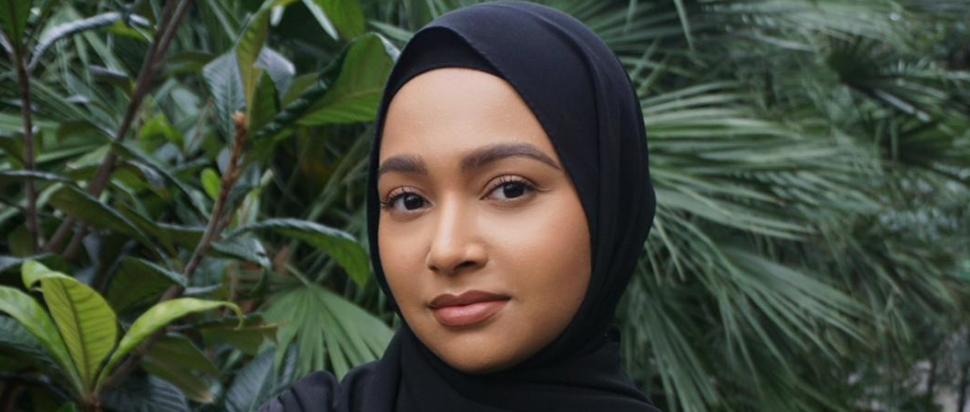Saima Begum on her debut novel The First Jasmines
In her debut novel The First Jasmines, Saima Begum gives voice to a long-silenced period of Bangladeshi history, exploring how history and literature construct gaps in the record
When Saima Begum was studying for her Masters, she took a class titled South Asian Literature. She immediately noticed gaps on the reading list, with no Bangledeshi texts included. “There was absolutely no text or significant piece of fiction from Bangladesh or on Bangladeshi history,” she explains, “so that led me to want to look into Bangledeshi history.” The history here is a complex one; once a whole country and then callously partitioned into three respective nation-states, the violent entanglement between India, Pakistan and Bangladesh have long been characterised by silence and shame across all kinds of institutions. This is particularly true for the Bangladesh Liberation War in 1971, in which East Pakistan (now Bangladesh) fought for independence against West Pakistan. Begum’s own parents and grandparents lived through the war, but “they never brought it up,” she says. “I felt like I didn’t know about a part of myself and I definitely did not see that reflected in the literature.” It was this silence that compelled Begum to write her debut novel, The First Jasmines.
The book is set against the backdrop of the last weeks of the war, and centres on Lucky and Jamila, two sisters who are captured and imprisoned by the Pakistani military in a detention camp. “I saw massive statistics, like hundreds of thousands of women had been raped, but I’m not reading about the experiences of these women,” Begum explains. Conservative estimates in the years following suggest that over 200,000 women were captured and raped by Pakistani military during the war, but these crimes have subsequently rarely been broached. “What happened to these women afterwards?” Begum asks. “Why was their history brushed away?”
The First Jasmines tells the story of the war through the experiences of Lucky and Jamila, alongside their fellow captives. The Pakistani soldiers pass through the novel like strangers, identifiable only by physical descriptors such as ‘Slightly Cross-Eyed’ or ‘Major Moustache’. “That’s typically how women were seen,” Begum says. “They were seen as bodies, but to them, the soldiers were also just bodies inflicting terrible pain onto them.” The majority of the book is set in a single room, yet in the brief intervals between this claustrophobic terror, the captured women transform their prison into a space for collective processing, not only reflecting on their oppressive present circumstances but also the constructs which shape their lives outside of the prison: marriage, motherhood, sexual dynamics, bodily autonomy and beauty standards.

“I think it was really important to have these discussions, because women do not receive the help, assistance, therapy, or any of the things that are necessary to be able to heal from a situation like that,” Begum explains. ‘‘I really wanted to explore the kinds of conversations that women in the room might have. Especially those who have been in the room for many months and those who had been in for a couple of days, and the different emotional, psychological and physical impacts that creates.”
Language is important in the novel: conversing in Bangla constructs a defensive wall for the women against their Urdu speaking captors. It becomes the primary method of resistance used by the women to cling on to their identity under siege. “The language issue was one of the biggest issues which led to the Independence War,” Begum explains. “We were forced to speak one language to construct the idea of a cohesive nation.” One of the captured women, Suhana, speaks Urdu fluently and thus is afforded special privileges by Major Moustache. Upon Bangladesh’s victory, Suhana moves to Pakistan with him. Although this betrayal may seem like a stark exception, it was an important sub-plot for Begum as “there were a significant number of women who really did do this. The title of traitor was so great at this time that even being seen to cook for these soldiers was seen as an act of betrayal. They preferred anonymity in that land over there, rather than staying [in Bangladesh] and having people know what happened to them.”
The true tragedy of the novel lies in what happens after the war, as women are expected to resume their lives in silence. “Women are seen as a single collective unit, as one person. So the thinking was that you could deploy one strategy against them and get the same outcome,” Begum explains. Yet Lucky and Jamila, the characters at the centre of the novel are forever impacted, and their once co-joined paths now diverge. Whilst The First Jasmines adds colour to a bleached page of history, the need to continue the conversation remains urgent work for Begum.
“These were 200,000 individuals with lives, with families, with their own unique characters and personalities,” she says. “It is still not enough for the government to say that we have dealt with the situation and we can now look beyond it. Decades have passed, but we still need this conversation.”
The First Jasmines is out on 31 Jul with Hajar Press
